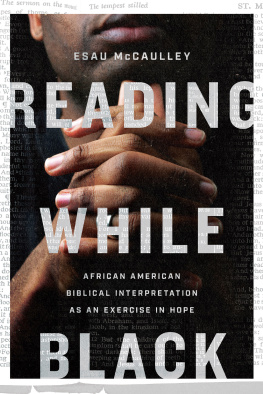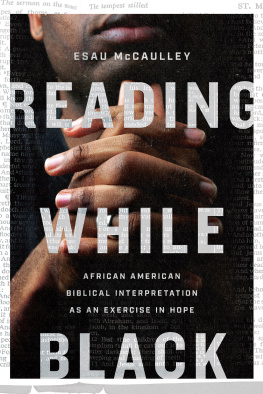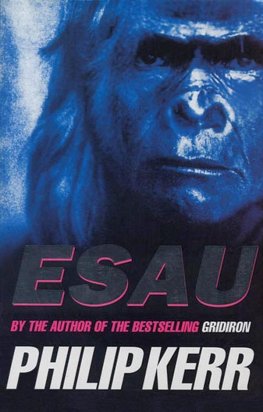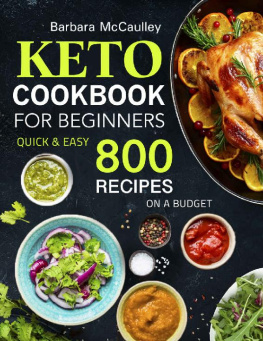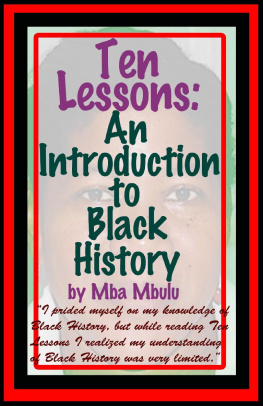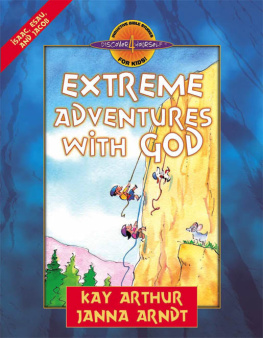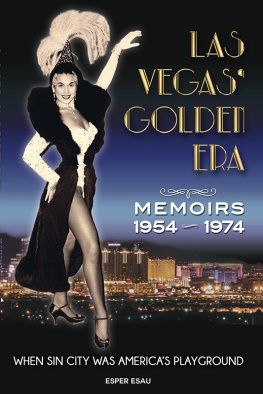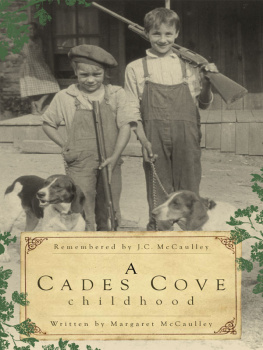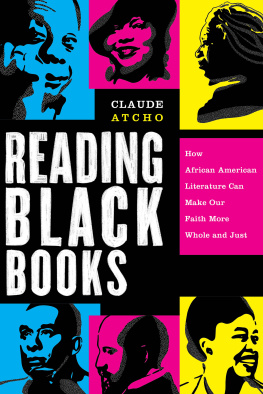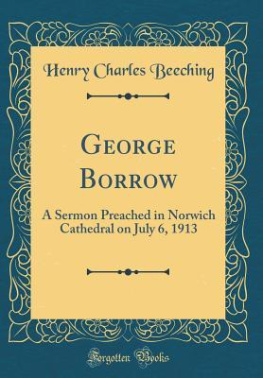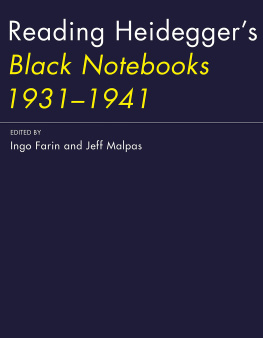Esau McCaulley - Reading While Black
Here you can read online Esau McCaulley - Reading While Black full text of the book (entire story) in english for free. Download pdf and epub, get meaning, cover and reviews about this ebook. year: 2020, publisher: InterVarsity Press, genre: Religion. Description of the work, (preface) as well as reviews are available. Best literature library LitArk.com created for fans of good reading and offers a wide selection of genres:
Romance novel
Science fiction
Adventure
Detective
Science
History
Home and family
Prose
Art
Politics
Computer
Non-fiction
Religion
Business
Children
Humor
Choose a favorite category and find really read worthwhile books. Enjoy immersion in the world of imagination, feel the emotions of the characters or learn something new for yourself, make an fascinating discovery.
- Book:Reading While Black
- Author:
- Publisher:InterVarsity Press
- Genre:
- Year:2020
- Rating:4 / 5
- Favourites:Add to favourites
- Your mark:
- 80
- 1
- 2
- 3
- 4
- 5
Reading While Black: summary, description and annotation
We offer to read an annotation, description, summary or preface (depends on what the author of the book "Reading While Black" wrote himself). If you haven't found the necessary information about the book — write in the comments, we will try to find it.
Reading While Black — read online for free the complete book (whole text) full work
Below is the text of the book, divided by pages. System saving the place of the last page read, allows you to conveniently read the book "Reading While Black" online for free, without having to search again every time where you left off. Put a bookmark, and you can go to the page where you finished reading at any time.
Font size:
Interval:
Bookmark:

InterVarsity Press
P.O. Box 1400, Downers Grove, IL 60515-1426
ivpress.com
2020 by Esau D. McCaulley
All rights reserved. No part of this book may be reproduced in any form without written permission from InterVarsity Press.
InterVarsity Pressis the book-publishing division of InterVarsity Christian Fellowship/USA, a movement of students and faculty active on campus at hundreds of universities, colleges, and schools of nursing in the United States of America, and a member movement of the International Fellowship of Evangelical Students. For information about local and regional activities, visit intervarsity.org.
Scripture quotations, unless otherwise noted, are from the New Revised Standard Version of the Bible, copyright 1989 by the Division of Christian Education of the National Council of the Churches of Christ in the USA. Used by permission. All rights reserved.
Cover design and image composite: David Fassett
Images: man with folded hands: caracterdesign / E+ / Getty Images
paper texture: Matthieu Tuffet / iStock / Getty Images Plus
open Bible: TokenPhoto / E+ / Getty Images
The publisher can't verify the accuracy of website hyperlinks beyond the date of print publication.
ISBN 978-0-8308-5487-5 (digital)
ISBN 978-0-8308-5486-8 (print)
This digital document has been produced by Nord Compo.
THIS BOOK IS DEDICATED
TO THE MEMORY OF
Esau McCaulley Sr.
who died before he ever got to see
a book bearing our name in print.
Whatever else I am,
I will always remain your son.
THIS BOOK WOULD HAVE BEEN impossible without the help of friends, family, and colleagues.
To my mother, Laurie, thank you for dragging us to church even when we didnt want to go and instilling in us a God-given hope for better things. This book is as much yours as it is mine. To my siblingsLatasha, Marketha, and Brandonthank you for loving your brother even when I didnt make it easy.
To my wife, Mandy, thank you for everything.
To Luke, Clare, Peter, and Miriam, my desire is that when times get difficult you will remember to read the texts of the Old and New Testament and find in them a source of hope like our ancestors did. If you ever forget what that hope looks like, I pray this book will guide you.
To Lisa Fields of the Jude 3 project, thank you for reminding me of the community to which I am responsible. To Tish Harrison Warren, thank you for helping me remember that writing can and should be beautiful. Thank you to Charlie Dates for modeling what faithful black church preaching and pastoring should look like, and to Justin Giboney of the AND Campaign for helping me recall that faithful advocacy is still possible.
To N. T. Wright, thank you for believing in me as a doctoral student and encouraging me to find my own way in the academy.
To the faculty, staff, and students of Northeastern Seminary and now Wheaton College, I am grateful for the encouragement and conversations along the way.
Thank you to Anna Gissing and the people of InterVarsity Press for believing in the importance of this project. Anna, you deserve a medal for all the texts, phone calls, and emails that you received. Ill be better next time. (Well, I probably wont.)
SOMETHIN TO SAY
ECCLESIAL INTERPRETATION

But just as we have the same spirit of faith that is in accordance with scriptureI believed, and so I spokewe also believe, and so we speak.
But its like this, though.... Im tired of folksyou know what Im sayinclosed minded folks. Its like we got a demo tape and dont nobody wanna hear it. But its like this. The South got somethin to say.
MY MOTHER TRIED HER BEST to immerse her children in the gospel. Most Sundays there was no question where we would be. The McCaulleys would be safely ensconced in our pew at Union Hill Primitive Baptist church in Huntsville, Alabama, from 10:00 a.m. until the Spirit had finished his work. There was, however, always a chance that my mother would be too tired from working at the Chrysler factory to drag her four unruly children to the house of the Lord. To encourage this fatigue to do its work, we would stay in our rooms as quiet as church mice hoping not to rouse her from her slumber. The signal that our plan had failed was the sound of Mahalia Jackson on the radio. Once Mahalia started in on Amazing Grace, the jig was up.
Our home knew Gospel music. In addition to Mahalia we received a steady stream of Shirley Caesar telling us to hold her mule and James Cleveland reminding us that he didnt feel no ways tired. Gospel music filled our home and shaped our imaginations even when we rebelled against it.
The second witness continually brought to bear upon the hopes and dreams of her four children was the large King James Bible that lived on a shelf in the living room. The King functioned more like a talisman than a book to be read. Whenever my mother wanted to wring the truth out of us, she would have us place our hands on the KJV and declare that what we had told her was the truth. Only the most brazen of sinners among us would dare speak falsehood in the presence of mom, Jesus, and King James. We also watched Christian cartoons (Superbook) and went to midweek Bible studies and as many Vacation Bible Schools as we could manage. The Scriptures were everywhere.
But I was also a child of my environment. I was a southern Black boy from Alabama in love with hip hop. As soon as my mother pressed pause on Mahalia, I pressed play on Southern hip hop. OutKast, Goodie Mob, and the bass coming out of Miami boomed in the Delta 88 that I drove to and from the schools and parties of Northwest Huntsville. That music also helped me interpret the world that seemed to have its foot on the neck of Black and Brown bodies in my city.
Put simply, I knew the Lord and the culture. Both engaged in an endless battle for my affections. I loved hip hop because sometimes it felt as if only the rappers truly understood what it was like to experience the heady mix of danger, drama, and temptation that marked Black life in the South. They spoke of the drugs, the violence, the encounters with the policeand even God. They did not so much offer solutions as much as they reflected on the life forced on them. But I also loved my mothers Gospel music because it filled me with hope, and it connected me to something old and immovable. If hip hop tended toward nihilism and utilitarian ethics (the game is the game so we do what we must to survive), then my mothers music, rooted in biblical texts and ideas, offered a vision of something bigger and wider. The struggle I speak of is not merely between two genres of music. I am referring to the struggle between Black nihilism and Black hope. I am speaking of the ways in which the Christian tradition fights for and makes room for hope in a world that tempts us toward despair. I contend that a key element in this fight for hope in our community has been the practice of Bible reading and interpretation coming out of the Black church, what I am calling Black ecclesial interpretation.
The nineties were a time of hip hop controversy with the two coastsEast and Westat war with one another. A record company called Death Row, which specialized in the gangster rap music that chronicled life on the streets of California, led the way out West. Bad Boy records, on the East coast, represented a tradition that valued lyrical dexterity and Black celebration. The struggle at the center of their conflict was the nature of rap music itself. What was the correct demeanor, tone, and focus?
Font size:
Interval:
Bookmark:
Similar books «Reading While Black»
Look at similar books to Reading While Black. We have selected literature similar in name and meaning in the hope of providing readers with more options to find new, interesting, not yet read works.
Discussion, reviews of the book Reading While Black and just readers' own opinions. Leave your comments, write what you think about the work, its meaning or the main characters. Specify what exactly you liked and what you didn't like, and why you think so.

